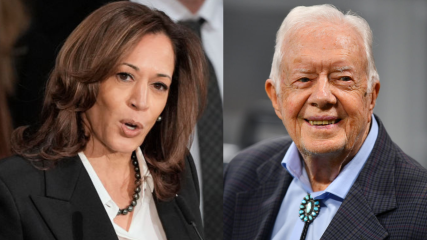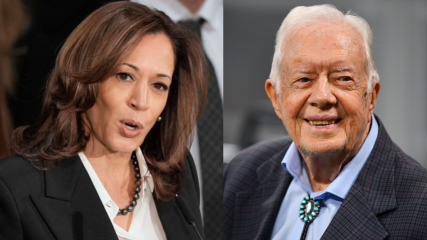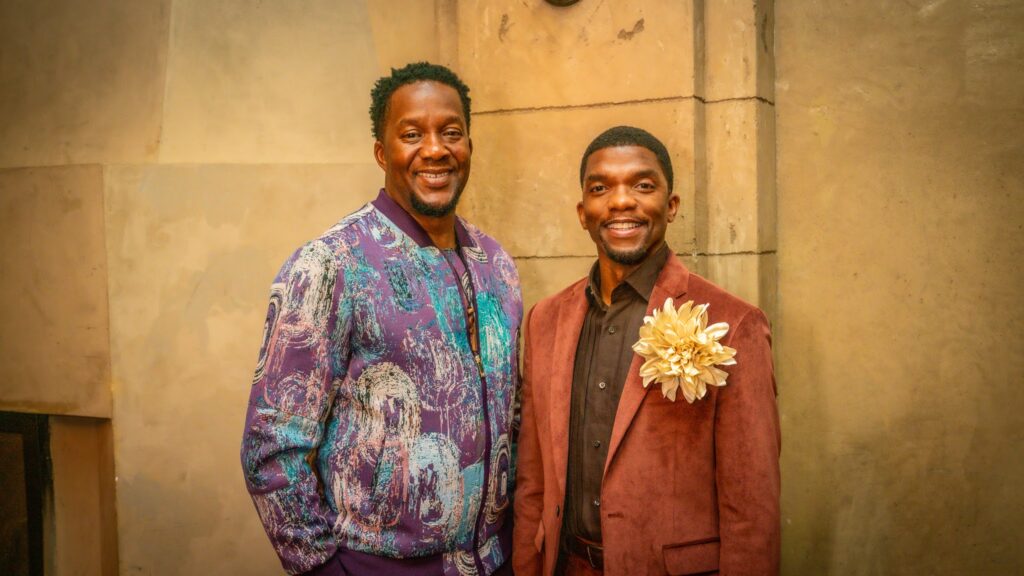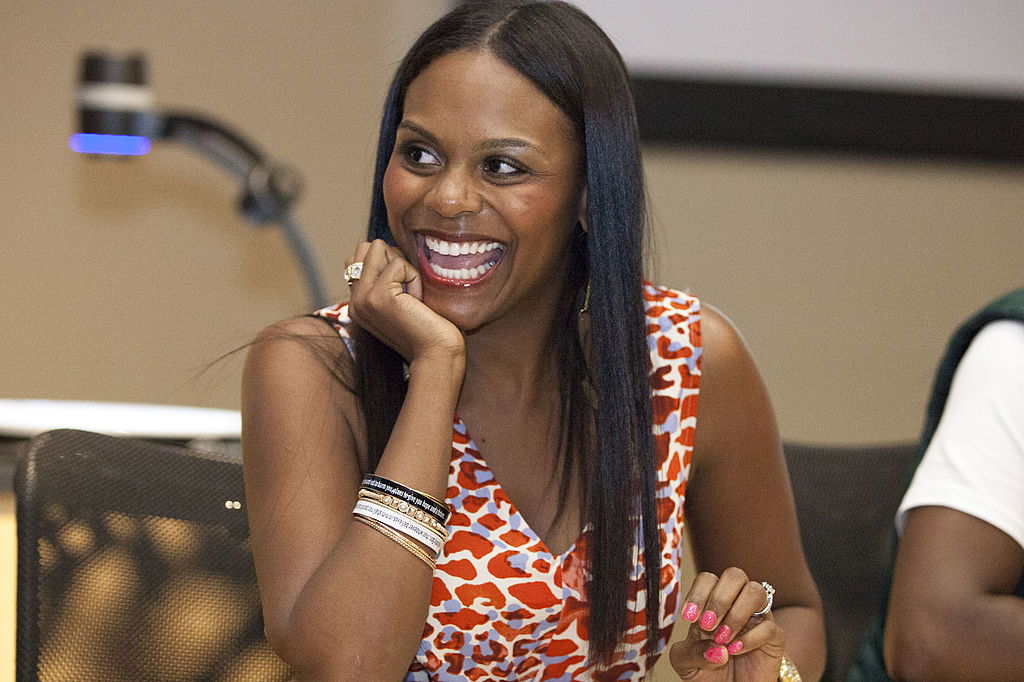Young Jimmy Carter and his friends were walking across a pasture after a day’s farm labor during the Great Depression. As they came to a gate, his companions stood aside and let Carter enter first.
This was no act of kindness or intuitive deference to a future U.S. president. The teens stopped because they were Black, and James Earl Carter Jr. was white, a 14-year-old whose father owned the Georgia land they all worked.
After years of playing and working as equals, his friends’ silent statement opened Carter’s eyes.
“We only saw it vaguely then, but we were transformed at the place,” Carter wrote in a poetry collection published years after his presidency. “A silent line was drawn between friend and friend, race and race.”
Carter, who died Dec. 29 at the age of 100, spent his life intertwined with America’s and the world’s enduring legacy of slavery. His approach revealed a dualism in Carter that, at least earlier in life, pitted his political ambitions against the idealism of his religious and social values.
He was a governor, president and humanitarian who climbed political ladders with calculated moderation, while still using his powerful platforms to break down racial barriers and advance human rights.
Carter “sometimes juggled the line to get into office,” said Bernice King, daughter of Martin Luther King Jr., who was assassinated two years before Carter’s election as Georgia governor. But he was “a real friend to the Black community,” she said, and, once elected, “did things that most elected officials from the South just didn’t dare do.”
Before his public career, Carter and his wife Rosalynn, who died in November 2023, were called “n—– lovers” because of stands they took as private citizens. Yet in politics, he sometimes found himself cast an Old Confederacy racist, and he carefully managed relationships with erstwhile segregationists like Alabama Gov. George Wallace.
“Jimmy Carter had as strong a rural, south-Georgia accent as anybody I know,” recalled Andrew Young, a King aide in the 1960s who would become a congressman, Atlanta mayor, then Carter’s U.N. ambassador and enduring friend. “When you first heard him say something, you got a negative vibe. I just assumed he was another segregationist.”
Instead, Young, now 92, came to see Carter as “an exceptional man” who tried “to show everybody how to live together.”
Early years defined by relationships with Black Georgians
Seeds for his future as a Civil Rights champion were planted on his family’s farm in Archery, just outside of Plains. Carter’s father employed about two dozen Black families as tenant farmers, and Carter recalled that as a child he never thought about social and legal distinctions on the farm.
He hunted, fished and crafted toys together with his Black friends, and the close proximity provided a window into how they lived.
His mother offered a counter to his father. A Southerner who quietly flouted Jim Crow segregation without crusading against it, “Miss Lillian” was the harbinger of her son’s political arc. She was known as the white nurse who treated Black patients, and welcomed Black women to her parlor for tea — though only when Earl was not home.
At the U.S. Naval Academy, Carter met fellow midshipman Wesley Brown, eventually the academy’s first Black graduate who was the target of discrimination. Reflecting his mother’s example, Carter was not outspoken in Brown’s defense but publicly befriended his cross-country track teammate.
Facing more tests as his political star rose
After leaving the Navy and returning to Plains in 1953 after his father’s death, Carter refused to join the White Citizens Council despite pressure from other businessmen. Yet as appointed chairman of the local school board, Carter never pushed to integrate schools, even though he and Rosalynn privately thought it was morally right.
As a state senator during the peak of the Civil Rights Movement, Carter was silent on President Lyndon Johnson’s Civil Rights legislation, and never tried to meet King, his fellow Georgian.
Running for governor in 1966, Carter positioned himself as a racial moderate, saying he ran to block white supremacist Lester Maddox. But when Carter finished a close third in the primary, he declined to endorse the more liberal Democrat, whom Maddox defeated.
“Carter was looking towards running again and didn’t want to make anybody mad,” said Bill Baxley, an Alabama attorney general who successfully prosecuted Klan members years after they bombed Birmingham’s 16th Street Baptist Church in 1963.
In the 1970 Democratic gubernatorial primary, then tantamount to winning the general election, Carter lampooned liberals and emphasized his opposition to federal overreach — a campaign Young recalled as racially coded. Running for Congress the same year, Young recognized a different side of Carter when they campaigned at Pascal’s, a famous Atlanta restaurant where King and other Civil Rights leaders once strategized.
“We were shaking hands with people,” Young recalled. “He said, ‘Just a minute, you can’t forget anybody.’ And he went into the kitchen and shook every hand” on the all-Black staff.
Carter’s needle-threading worked. He won the primary, carrying the same rural areas that propelled Maddox four years earlier.
The new governor immediately surprised supporters and critics alike using his inaugural address to declare “the time for racial discrimination is over.” He landed on the cover of Time magazine as an example of the so-called New South. He opened state government contracting to Black-owned businesses, appointed Black Georgians to key posts and formed a friendship with King’s parents and his widow.
On the big stage
Reaching for the White House, Carter again walked a fine line.
After defeating Wallace in the key Florida primary, Carter visited the Alabamian for an endorsement. Carter later caused a firestorm with comments that seemingly justified whites-only neighborhoods and had to apologize.
Then, Carter tapped Texas Rep. Barbara Jordan as the first Black woman to deliver a keynote convention address for either major party. King Sr. delivered the benediction.
“I was still in high school, and I got to look at my television and see Barbara Jordan, a woman who looked like me,” said Donna Brazile, who went on to become the first Black woman to manage a U.S. presidential campaign, running Al Gore’s 2000 effort. “I owe that in many ways to Jimmy Carter.”
Once in the Oval Office, Carter appointed more nonwhites and women to top government jobs than his predecessors combined, most notably federal judgeships. He pushed for official observances of King’s birthday, increased funding for historically Black colleges, and promoted fair housing and banking policies.
Carter applied the rhetoric and ideas of the U.S. Civil Rights Movement to global affairs, elevating human rights in foreign policy. Through the Carter Center, after their White House years, the Carters concentrated their democracy and public health advocacy in developing nations, most with nonwhite populations.
Carter remained conscious of racial politics until his last days.
In 2024, frail, widowed and more than a year into hospice care, Carter told his son he was determined to keep going because he wanted to vote for Kamala Harris, the first Black woman and person of south-Asian descent to be a major party presidential nominee.
Harris, who as vice president eulogized Carter on Tuesday in Washington, lost.
“Sometimes it seems like we are going backward,” said Angela Cooper, a 59-year-old Black woman from Duluth, Georgia, after she filed past Carter’s flag-draped casket Sunday in Atlanta. “But President Carter showed that one man can do right just by standing up and saying, ‘Enough.’”






